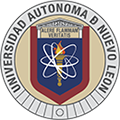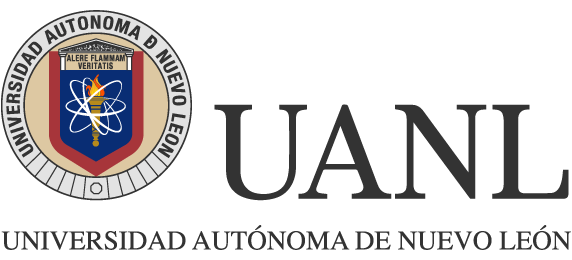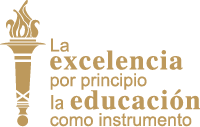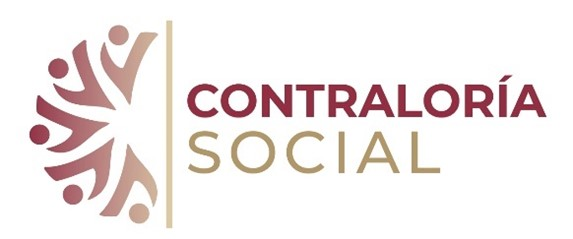Share:
Bachelor of Pharmaceutical and Biological Chemistry
School of Chemistry
Admission profile
The candidate aspiring to pursue the educational program in Bachelor of Pharmaceutical and Biological Chemistry must demonstrate and possess the following characteristics:
i. Evaluable characteristics
- Proficiency in general knowledge in the field of chemistry.
- Proficiency in general knowledge in the field of mathematics.
- Proficiency in general knowledge in the field of biology.
- Strong numerical and verbal reasoning skills.
- Exceptional analytical thinking abilities.
- The ability to comprehend texts in English.
ii. Desirable characteristics
- Genuine interest in biological chemistry.
Admission requirements
Academic
Have successfully completed high school or equivalent studies.
Legal
Meet all criteria established by UANL's current standards and procedures.
Testing
The student must take the Undergraduate Student Admission Test required by UANL.
Program-specific
After being selected, the student is required to complete the mandatory induction course within the two weeks leading up to the commencement of classes.
Graduation profile
Purpose:
The purpose of this program is to equip Pharmaceutical Chemist Biologists with the knowledge, skills, and attitudes necessary to contribute to the diagnosis, treatment, and prevention of diseases. This includes active involvement in the design, production, regulation, and guidance of pharmaceuticals to support health maintenance and recovery. Through comprehensive training, they are prepared to practice their profession with a strong sense of social responsibility, focusing on the rational use of medicines, ensuring their supply and quality. They are also adept at generating safe food, reliable and effective biotechnological products, and issuing trustworthy laboratory results. Graduates of this program are well-prepared to excel in various globalized settings, including pharmacies, hospitals, clinical diagnostic laboratories, pharmaceutical, food, biotechnological, and chemical industries, as well as health regulation, academic institutions, and research centers.
General skills
Instrumental competencies
- Graduates are equipped with autonomous learning strategies across various knowledge domains and stages of life. These strategies empower them to make timely and relevant decisions in personal, academic, and professional spheres.
- Graduates are proficient in employing logical, formal, mathematical, iconic, verbal, and non-verbal languages. They adapt their communication styles based on their life stage, enabling them to understand, interpret, and express ideas, feelings, theories, and diverse schools of thought with an inclusive approach.
- Graduates are adept at utilizing Information, Communication, Knowledge, and Digital Learning Technologies (TICCAD) with cutting-edge techniques. They apply these skills in academic, personal, and professional contexts, fostering constructive and collaborative participation in society.
- Graduates demonstrate mastery of their mother tongue, both orally and in writing, with correctness, relevance, timeliness, and ethical considerations. They adapt their messages to fit specific situations or contexts, effectively transmitting ideas and scientific findings.
- Graduates employ logical, critical, creative, and proactive thinking to analyze natural and social phenomena. This enables them to make informed decisions within their sphere of influence, all while embracing their social responsibility.
- Proficiently utilize a second language, preferably English, to communicate effectively in everyday, academic, professional, and scientific contexts, ensuring clarity and correctness.
- Foster the development of inter-, multi-, and transdisciplinary academic and professional proposals aligned with global best practices, fostering collaborative work and consolidation.
- Apply both traditional and cutting-edge research methods and techniques in the pursuit of academic endeavors, professional activities, and knowledge generation, thereby enhancing the quality and impact of their work.
Personal and Social interaction competencies
- Maintain an unwavering commitment and respect for the diversity of social and cultural practices. This commitment reaffirms the principle of integration within local, national, and international contexts, fostering environments conducive to peaceful coexistence.
- Actively engage with the challenges of contemporary society, both locally and globally. Approach these challenges with a critical perspective and a deep-seated commitment, as both human beings and professionals, to contribute to the advancement of general well-being and sustainable development.
- Practice the core values advocated by the UANL (Universidad Autónoma de Nuevo León): truth, equity, honesty, freedom, solidarity, respect for life and others, peace, respect for nature, integrity, ethical conduct, and justice. Apply these values in both personal and professional environments, playing a role in the construction of a sustainable society.
Integral competencies
- Construct innovative proposals by comprehensively understanding the complexities of our interconnected global environment. These proposals should be aimed at addressing and surmounting the challenges posed by this interdependence.
- Demonstrate committed leadership, addressing both social and professional needs, to drive meaningful social change that benefits the greater community.
- Skillfully resolve personal and social conflicts utilizing specific techniques relevant to their academic field and profession. These skills facilitate informed decision-making in situations requiring conflict resolution.
- Attain the adaptability necessary to thrive within the uncertain social and professional landscapes of our era. This adaptability is essential for contributing to the creation of improved living conditions in these evolving environments.
Specific skills
- Generate laboratory results by adhering to best practices in the analysis of chemical and biological samples. These results play a vital role in facilitating informed decision-making across pharmaceutical, clinical, food, and biotechnological sectors.
- Validate clinical laboratory results in strict accordance with national and international regulations and robust quality management systems. This validation process contributes significantly to disease diagnosis, prevention, and control, while also aiding in the establishment and monitoring of effective individualized therapy.
- Develop pharmaceutical and biological products while adhering to stringent good manufacturing practices, as well as complying with national and international regulations. This approach ensures the production of high-quality products that effectively address the needs of the population.
- Offer top-tier pharmaceutical services within hospital settings, encompassing the entire spectrum from generation to implementation, follow-up, and control. These services strictly adhere to current regulations governing medication use and control. The ultimate goal is to contribute to the ideal therapy for each patient, ensuring their well-being.
- Extend pharmaceutical care to the community, involving the assessment of therapeutic plans and patient education. This comprehensive approach guarantees the safe and effective implementation of therapies, fostering the health and safety of the community.
- Develop microbiological control systems that evaluate the operational conditions within industrial, biotechnological, pharmaceutical, and healthcare processes. By doing so, these systems ensure the delivery of safe, high-quality goods and services to society.
- Utilize principles from food science to create food products with nutritional, sanitary, and sensory excellence. This approach contributes to the promotion of healthy consumption, enhancing the overall quality of life for the population.
Labor market
| Area | Jobs |
| 1. Hospitals/Hospital Pharmacy | 1. Manages drug distribution systems
2. Provides patient counseling on the proper use of medications 3. Plans and executes unit dose dispensing of medications, contributing to precise medication administration. 4. Enhances patient care through the provision of hospital pharmaceutical care services 5. Conducts pharmacological follow-up to enhance therapeutic outcomes and patient well-being. 6. Implements activities to detect and evaluate adverse effects related to medication and vaccine use, prioritizing patient safety. 7. Prepares pharmaceutical formulations, adhering to established standards. 8. Evaluates interactions between components within drug formulations to ensure their safety and efficacy. 9. Ensures the safety of patients by providing secure and effective therapies. 10. Assesses the effectiveness of drug distribution systems, optimizing their functionality. 11. Advocates for the rational use of medications, promoting informed and appropriate usage. 12. Evaluates the benefit/cost ratio for users, considering the overall value of medications. 13. Validates medical prescriptions to prevent medication errors and enhance patient safety. 14. Applies inventory control and follow-up processes in accordance with current regulations and national health laws, ensuring the delivery of quality pharmaceutical services in the role of the hospital pharmacy supervisor. |
| 2. Pharmacy /Community Pharmacy | 1. Develops comprehensive pharmaceutical care plans to support patients effectively
2. Offers guidance to patients, discouraging self-medication and providing information to promote the rational use of medications. 3. Assesses the effectiveness of the patient’s therapeutic plan, ensuring it aligns with their healthcare needs. 4. Conducts regular pharmacotherapeutic follow-up to monitor and optimize treatment outcomes. 5. Actively engages in pharmacovigilance activities, focusing on detecting and evaluating adverse effects associated with drug and vaccine usage. 6. Adheres to inventory management, control, and follow-up procedures mandated by current regulations and national health laws. These measures are implemented to deliver high-quality pharmaceutical services within the community pharmacy, under the supervision of the designated healthcare authority. |
| 3. Hospitals/Clinical Laboratory | 1. Sample Collection and Analysis: Proficiently conducts sample collection for various types of analysis, including clinical biochemistry, microbiological, immunological, toxicological, molecular assays, parasitological, and hematological, ensuring accurate results.
2. Manages clinical samples through all phases of analysis, including pre-analytical, analytical, and post-analytical, maintaining the integrity and reliability of the data 3. Prepares comprehensive reports of analysis results 4. Conducts confirmatory tests to validate diagnostic analyses, ensuring accuracy and reliability 5. Expertly interprets and correlates laboratory results, providing valuable insights for clinical decision-making 6. Performs validation of analytical methods, ensuring their precision and suitability for diagnostic purposes.. 7. Implements rigorous quality control measures to validate the accuracy and reliability of laboratory results. 8. Effectively manages and organizes clinical diagnostic laboratories, optimizing workflow and efficiency. 9. Adheres to inventory management, control, and follow-up processes mandated by current regulations and national health laws. This commitment ensures the provision of high-quality clinical analysis services, with accountability resting on the laboratory sanitary responsible under the Ministry of Health. 10. Implements robust quality systems for internal and external evaluation 11. Establishes a secure and organized system for the custody of samples. 12. Strictly adheres to safety rules and protocols within the laboratory. 13. Effectively manages the proper disposal of chemical and biological waste. |
| 4. Hospitals/Blood Bank | 1. Performs blood sampling.
2. Performs donor selection according to current regulations. 3. Analyzes donor samples. 4. Performs compatibility tests between donors. 5. Establishes a system for the custody of the samples. 6. Obtains blood units for donation. 7. Performs the separation of the different blood components for subsequent transfusion. |
| 5. Chemical, Food, Biotech, Pharmaceutical/Plant Industry | Supervises production lines of medicines, food, cosmetics and biotechnological products.
2. Performs control of production processes. 3. Manufactures pharmaceutical, cosmetic, biological and food products. 4. Applies good manufacturing practices in the production processes of goods and related services. 5. Investigates the development of microorganisms in order to establish internal and external parameters that allow modifying or controlling: a. The promotion of the growth of microorganisms that can be used as biomass or consumer good. b. The induction in the production of biotechnological metabolites that allow the generation of compounds of interest to mankind. c. The inhibition of microbial growth and propagation in the case of pathogenic and harmful microorganisms for the environment. 6. Applies the current regulations in the production of medicines, food and cosmetics, as well as biotechnological products to guarantee quality consumer goods. |
Graduation requirements
Academic
-To have passed the 226 total credits of the study plan.
-To have completed the mandatory Learning Service.
Legal
Those established by the University's regulations and procedures in force; or others, if applicable.
Program-specific
-To comply with the Seminar for professional performance.
-To take the bachelor's degree graduation exam.
-Proof of participation in activities for comprehensive training.
-Proof of having developed or strengthened competence in a foreign language.
Accreditations
National
Name
Accreditors that belong to the Council for the Accreditation of Higher Education (COPAES)
Accreditor
Consejo Mexicano para la Acreditación de la Educación Farmacéutica, A.C
Accreditor's acronym
COMAEF
http://www.comaefac.org.mx/Validity of accreditation
June 2027
Location
Fecha de aprobación del H. Consejo Universitario
30 de noviembre de 2021.Posted by: Dirección del Sistema de Estudios de Licenciatura




